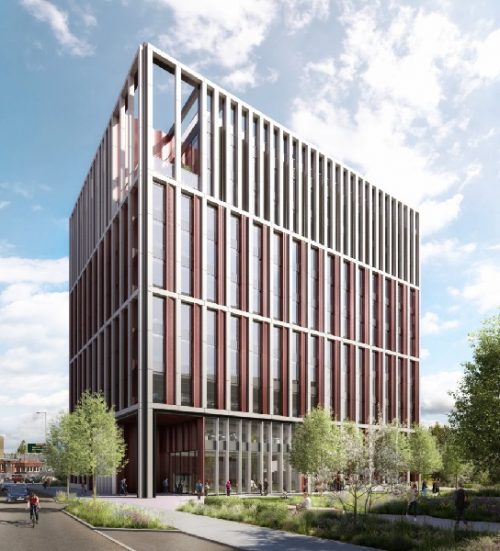Birmingham rises to second in list of UK’s top Tech Cities

Birmingham has leapfrogged Edinburgh to claim second place in a list of the UK’s leading tech cities outside London.
Previously ranked fourth, the city has risen two places in CBRE’s UK Tech Cities report, cementing its position and boosting its reputation as an established location for tech companies.
Manchester retains the top spot, with Glasgow falling from second to third and Edinburgh slipping from third to fifth.
Last published in 2019, the Tech Cities Report ranks the UK’s top 15 cities outside London based on a range of factors including access to skilled talent, availability of office space, proximity to institutions providing high quality tech courses, cost of living and employment costs.
Birmingham is home to several world class universities and educational institutions, which is reflected in the city’s improved scoring in The Guardian’s league table of the UK’s best universities for computer science and information degrees. This has had a positive impact on the number of students studying in Birmingham and staying to work post-graduation. According to research by CBRE, outside London the city has the highest graduate retention in Great Britain.
CBRE’s Tech Cities report forecasts that employment in information and communication will grow by 7.65% between 2021 and 2025 – the strongest regional growth in the UK.
The report also highlights that Millennials and Gen Z will be critical to filling the roles created by the tech sector. For employers, Birmingham has a clear advantage over its regional rivals, with a population of more than a million Millennials and Gen Zs – the highest of all the top 15 cities included in the Tech Cities report.
Access to a highly skilled female population is also an increasingly important factor to consider for tech companies. Again, Birmingham performs well when compared to other regional cities, with the highest number of degree level educated women, sitting 19% above the number of degree level educated men in the city. However, it is the lowest of all cities when looking at the number of total female population with a degree.
Mike Gedye, head of tech sector vertical, CBRE said: “Across all cities, the UK tech sector has seen significant growth over the last decade and shown it is far from being a fleeting trend – but here to stay.
“Tech companies are now more than ever competing for the best talent and post-pandemic have broadened their horizons in hiring a more distributed workforce and will drive a new era of regional tech demand. The regionalisation of the tech sector beyond London and the South East will also be critical to sustain the UK’s ability to innovate and compete on the global stage.”
For the commercial property market, the expansion of Birmingham’s tech sector presents both challenges and opportunities.
Theo Holmes, director and head of office agency at CBRE in Birmingham, said: “In line with the forecasted growth in employment, we expect take up of office space in Birmingham by the tech sector, be it directly by tech companies or indirectly via tech-based jobs in other sectors such as business, professional and financial services, to increase over the next three to four years.
“The challenge for landlords and developers, in addition to the current constrained supply of office accommodation, is creating space that tech companies and their employees want to work in, be it flexible and co-working offices to incubation hubs.
“As the Tech Cities report highlights, the new generation of workers place great importance on workplace culture and work/life balance, as well as social and environmental issues. Companies that are in tune with this and can provide the right environment will attract and retain the best talent.”
In Birmingham, established digital and tech clusters include The Custard Factory, Fazeley Studios, and Innovation Birmingham Campus, where Bruntwood SciTech is developing 120,000 sq ft of new Grade A flexible office space, specifically for digital and tech businesses, at Enterprise Wharf.
The city is also home to Europe’s largest asset management FinTech innovation hub, The Engine Room, which provides 5,000 sq ft of flexible co-working office space for start-up companies.
“Birmingham’s provision of flex office space is growing,” said Holmes. “Since 2016, flex operators have acquired 700,000 sq ft in the city, equivalent to around 4% of total office stock. In recent times, the presence of flexible office space has acted as a springboard into the city, allowing occupiers to test the market before relocating. Goldman Sachs took this approach when selecting Birmingham for its new FinTech division.
“With backing from both the public and private sector, Birmingham’s tech sector is gathering real momentum.”









